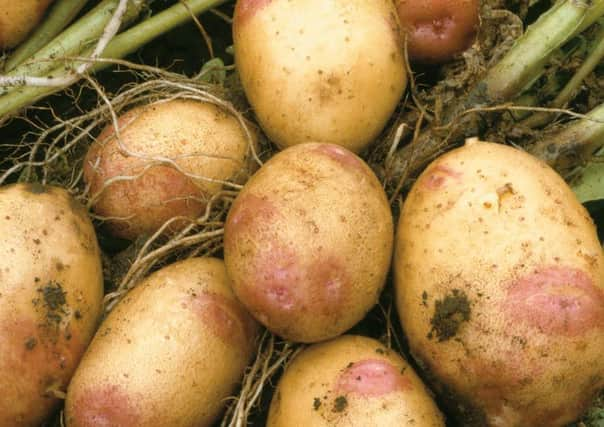Slow recovery for potatoes


The free bi-annual British Potato event takes place at the Yorkshire Event Centre on November 27 to 28 with more than 6,000 growers, packers, retailers, researchers, consultants, students and international visitors expected to attend.
Held by the Potato Council, it is an industry barometer and a chance to update the supply chain on trade changes, the competitiveness of the market and the latest innovations in the sector.
Advertisement
Hide AdAdvertisement
Hide AdRob Clayton, director of the Potato Council, said: “Meeting so many growers, packers, processors, researchers, engineers and product manufacturers under one roof is the biennial highlight for the Potato Council Team and Board.
“It’s always a delight to see so many ideas shared, so many notes compared, so many friendships renewed and so much business done.”
Over the last two years, since the event was last held, growers have faced challenging times. Growers have contended with the coldest winter’s day, the most persistent frost, the second hottest summer’s day and the wettest drought in history.
The 2012/13 season was particularly hard and difficult growing conditions resulted in a poor harvest. In the week to November 9 last year, 113,000 hectares of crops across Great Britain had been cleared, down by 15,000 hectares on the year before. By the same point this year, 117,000 hectares was cleared.
Advertisement
Hide AdAdvertisement
Hide AdLast year, low supplies pushed prices to record levels but early indications for the 2013/14 season suggest a more typical season with adequate supplies, lower prices and potential export opportunities, the Potato Council said.
While it is a better picture on last season, bad weather at the start of the year has hampered the recovery.
Crop planting in March and April was delayed by periods of cold and wet weather, hindering growth and contributing to a lag in crop development. Many of the very early planted crops went into cold ground while the later-planted second early and maincrops went into warmer soils and this led to a considerable disparity between different crops.
At the start of July, crops were generally progressing well under welcomed warm and sunny conditions interjected with some beneficial rain but as the month progressed light showers brought dry soils and increased irrigation usage, and maincrop lifting started a couple of weeks behind schedule.
Advertisement
Hide AdAdvertisement
Hide AdMr Clayton said: “The production highs of 2011 and lows of 2012 have brought with them a volatility not seen in a generation and growing exposure to European trade has brought new risks and threats to our industry. With seed markets opening to us in the Far East there are new opportunities too.
“These risks and rewards will be debated in new BP2013 panel sessions.”